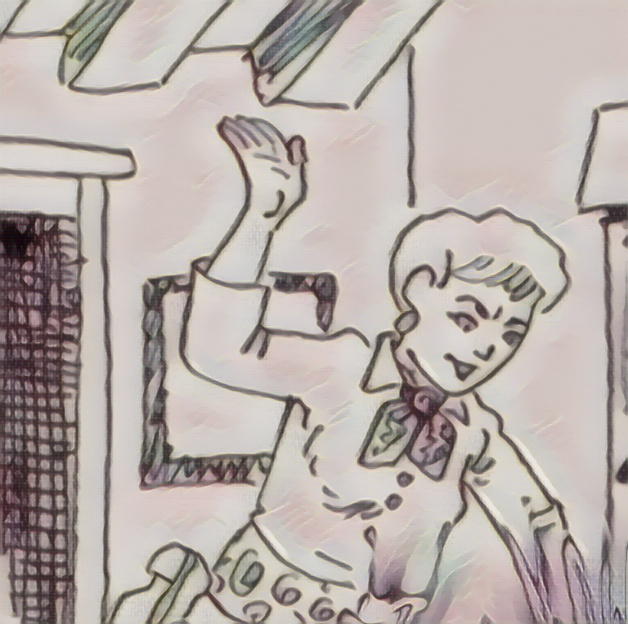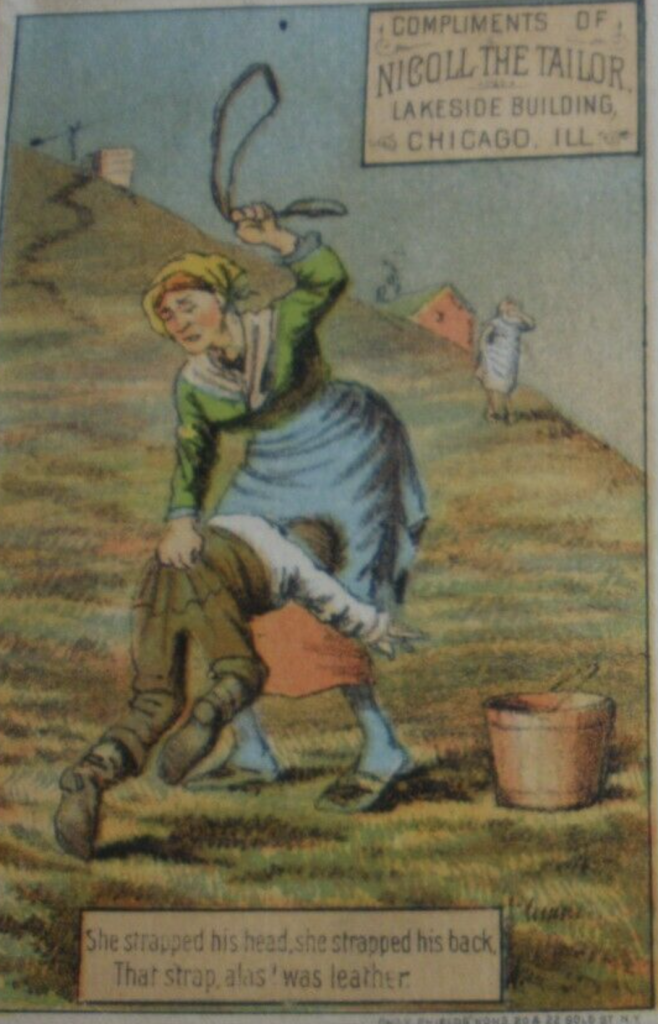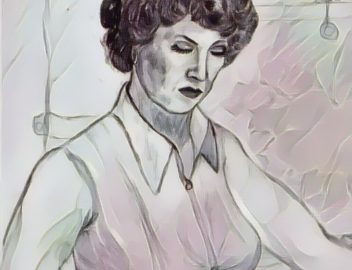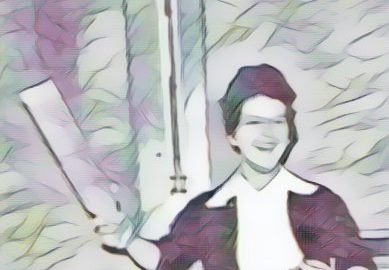(gap: 2s) Have you ever wondered how the memories of our formative years can shape the person you become? My name is Linda, and now that I am a lady of some years, I find myself looking back fondly upon the days of my youth in a small Sussex village. Today, I should like to share with you a story that has remained with me all these years.
The village where I grew up was a quiet and rather old-fashioned place, where time seemed to move at a gentle pace and the world beyond our hedgerows felt very far away indeed. The grown-ups there were much as you might imagine: the gentlemen wore their trousers high and their faces were often serious, while the ladies kept their hair in neat curls and spoke in brisk, no-nonsense tones. Their clothes were plain and sensible, and their ways were shaped by the hardships of earlier times. Discipline was considered most important, and the younger generation were expected to be polite, obedient, and respectful at all times. The air seemed to carry the weight of tradition, and the rules of the past lingered in every corner of our little world.
In the midst of all this, my own parents were rather different. They were gentle and understanding, and our home was filled with laughter, music, and the delicious scent of freshly baked bread. I was brought up in a most kind and loving household, and I was never smacked or punished harshly. My school was much the same, and although the cane was kept as a warning, I do not recall anyone ever receiving it. If ever I did something wrong, it was discussed sensibly over a cup of tea, rather than with a raised voice or hand.
Yet, even in such a gentle home, the idea of punishment—especially the sort one read about in storybooks—held a certain fascination for me. I remember, as clearly as if it were yesterday, the first time my curiosity was truly awakened. It happened during a visit to my cousin’s house, where the rules were many and discipline was given with a firm but fair hand. The house was filled with the scent of lavender polish and the ticking of clocks. One afternoon, as we played in the drawing room, my cousin accidentally knocked over a vase with a rather wild kick of his football. The vase shattered, and his mother entered the room, her face a mixture of sternness and amusement. She gave him a quick smack, and though he yelped, there was no real anger in it. It seemed almost like a little ceremony, a brief moment of trouble followed by forgiveness. I watched, wide-eyed, feeling a curious flutter in my chest—a mixture of awe and wonder at the mysterious power of such moments. From that day, the idea of discipline, with all its seriousness and ritual, became a subject of endless fascination for me. I would find myself daydreaming about such scenes, imagining the stern voices and the swift, decisive actions that seemed to restore order to the world.
So, you see, I lived in a rather gentle and peaceful world—quite unlike the stories I sometimes read, where the young were sent to bed without supper or given a jolly good smacked bottom for their mischief. At night, I would lie awake, the moonlight casting silver patterns on my bedroom wall, and wonder what it might be like to be on the receiving end of such discipline. The very idea seemed both mysterious and exciting.
Ours was a very small village, and for much of my younger days, I was the oldest living there. I must confess that I rather enjoyed this position, for it meant that the younger ones would come to me for stories, games, and the occasional bit of mischief. I liked the feeling of being in charge, and the way the little ones looked up to me with such trust and admiration.
In those days, most of the young in the village were indeed disciplined with a smack if they misbehaved. Even those I looked after would not tell their parents if I had to scold them, for fear of further punishment. There was an unspoken understanding among us, and the ritual of discipline became almost a game, with everyone knowing their part.
I must make it clear that I never punished without good reason—there was always a proper cause. However, I do admit that sometimes my curiosity got the better of me, and I may have invented small misdeeds just to see how things would unfold. The youngsters seemed to accept this as part of the natural order, their eyes wide with a mixture of anticipation and excitement.
Most often, I would give just a few gentle smacks with the culprit standing and fully clothed, and even then, they would usually howl and beg me to stop, though I was never truly cross. Their cries would echo through the house, mingling with the sound of birdsong and distant laughter, and I would feel a curious mixture of guilt and satisfaction. The ritual was brief, but it left a lasting impression on us all.
If the culprit was not suitably sorry, I would place them across my lap and give a gentle smack on thier bottom. If they still did not show contrition, it might be necessary to use a hairbrush or a slipper if they had been especially naughty. There was always a sense of ceremony—the rolling up of sleeves, the stern warning, the dramatic pause before the first smack. The culprit would squirm and protest, but there was a sense of inevitability to it all, as if we were all playing our parts in a well-rehearsed play.
There was one little boy in particular who was especially fond of me. His devotion was clear in the way he followed me about, his eyes shining with admiration, always eager to please and just as eager to test the boundaries I set.
His name was Ethan, and he was the very picture of a village scamp, much like the boys in the adventure stories I so loved to read. He was a wiry, tousle-haired boy with a perpetually grubby face, his knees forever grazed and his shirt never quite tucked in. His eyes sparkled with mischief, and he had a grin that could charm anyone. Ethan was never still for a moment, always fidgeting, bouncing on the balls of his feet, or drumming his fingers on the nearest surface. He had a knack for wriggling out of tight spots, both literally and figuratively, and his voice—cheeky, quick, and just a touch too loud—was a constant soundtrack to our afternoons. He was the sort of boy who would tip his cap (if he had ever kept one on his head), offer a lopsided salute, and dash off before you could catch him. Yet, for all his bravado, there was a certain earnestness in his apologies and a genuine warmth in his laughter that made it impossible to remain cross with him for long. I remember the way his eyes would widen in mock terror when he knew he had gone too far, and the way he would try to charm his way out of trouble with a crooked smile and a heartfelt, “Sorry, miss!”
Ethan seemed to find mischief wherever he went, and I often had to give him a gentle smack. There was a playful energy between us, a dance of challenge and consequence, and I suspect he enjoyed the attention as much as I did. Sometimes, after a particularly stern scolding, he would sulk for a few minutes, only to return with renewed mischief, as if daring me to catch him again.
Ethan had a habit of saying, “Your smacks do not even hurt!” That would truly spark a sense of determination in me, and I would try a little harder to make my point. I even used a garden cane on him once, but it split after only a couple of strokes, so I stopped at once. The memory of that day is still vivid: the sharp crack of the cane, the surprised yelp, the sudden silence as we both realised the implement had broken. We stared at each other, wide-eyed, before bursting into laughter, the tension dissolving in a wave of shared amusement.
Some years later, I attended a gathering in the city nearest to my old village, and who should I see there but Ethan! We laughed together about those old times, but decided not to revisit our old games, for now my interests are rather different. Seeing him again, older but with the same mischievous glint in his eye, brought back a flood of memories—of sunlit afternoons, secret games, and the peculiar, powerful rituals that shaped our younger days.








